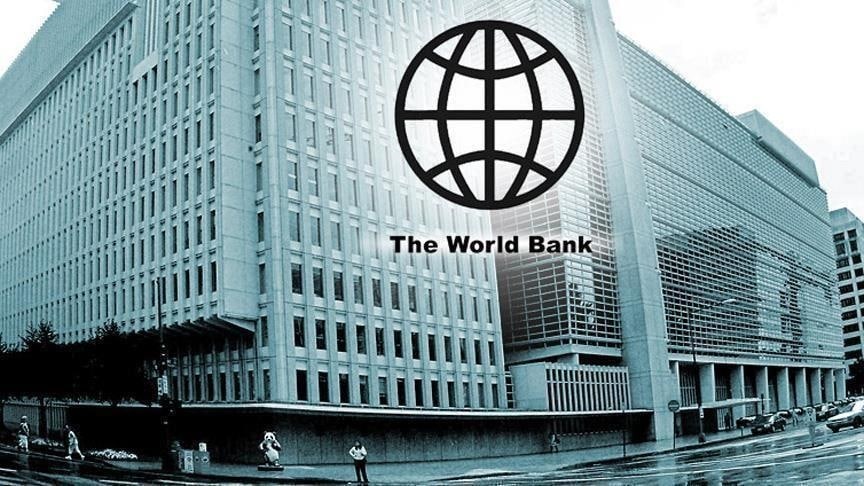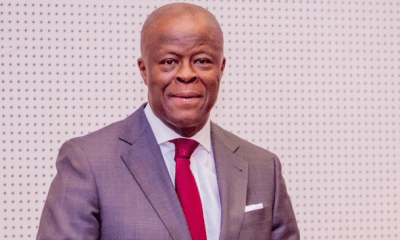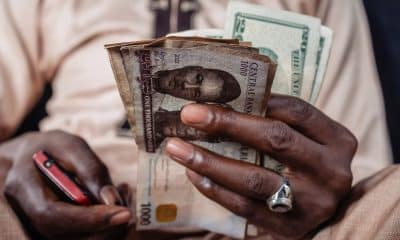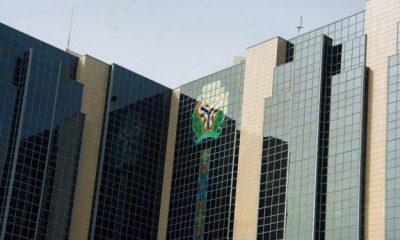Business
Nigeria Spent 96% Revenue On Debt Servicing In 2022 – World Bank

Nigeria’s economic growth has suffered more setbacks as the country’s debt servicing increased rapidly in recent years.
In a recent report, the World Bank disclosed that Nigeria spent 96.3 per cent of its revenue on servicing debt in 2022.
The revelation was contained in the Macro Poverty Outlook for Nigeria: April 2023 brief released by the international bank.
The report highlighted that the country’s fiscal position further deteriorated following recent challenges in Nigeria. World Bank revealed that in 2022, the cost of the petrol subsidy increased from 0.7 per cent to 2.3 per cent of GDP.
“Low non-oil revenues and high-interest payments compounded fiscal pressures. The fiscal deficit was estimated at 5.0 per cent of GDP in 2022, breaching the stipulated limit for a federal fiscal deficit of 3 per cent. This has kept the public debt stock at over 38 per cent of GDP and pushed the debt service to revenue ratio from 83.2 per cent in 2021 to 96.3 per cent in 2022,” the reports said.
The bank also said that the cash scarcity created by the Central Bank of Nigeria (CBN) Naira redesign policy hampered the country’s economic growth and poverty reduction efforts, adding that about 13 million Nigerians would become poor between 2019 and 2025.
The report reads: “Nigeria is more fragile than before the late 2021 global oil price boom. Cash scarcity has further affected growth and poverty reduction in the context of the Naira redesign. The economy is projected to grow by an average of 2.9 per cent per year between 2023 and 2025, only slightly above the population growth rate of 2.4 per cent. Services, trade, and manufacturing will drive growth. Oil production is projected to remain subdued in part because of inefficiencies and insecurity.
“With Nigeria’s population growth continuing to outpace poverty reduction and persistently high inflation, the number of Nigerians living below the national poverty line will rise by 13 million between 2019 and 2025 in the baseline projection.”
According to the World Bank, the worsening economic environment in the country has pushed millions of Nigerians into poverty.
The brief read, “Oil price booms have previously supported the Nigerian economy, but this has not been the case since 2021. Instead, macroeconomic stability has weakened amidst declining oil production, costly fuel subsidies, exchange rate distortions, and monetization of the fiscal deficit. The deteriorating economic environment is leaving millions of Nigerians in poverty. Risks are tilted to the downside given the lack of macro-fiscal reforms, the naira demonetization, and an uncertain external outlook.”
The bank further noted that macroeconomic stability has considerably weakened due to multiple FX rates, high inflation, rising fiscal pressures, and declining forex reserves.
It noted that Nigeria’s fiscal position has deteriorated since 2015 due to declining oil revenues and rising expenditures, resulting in persistent budgetary deficits.
The bank also said that Nigeria’s chronically high inflation has risen since 2019, especially for food items, eroding the purchasing power of poor and vulnerable Nigerians and increasing poverty.
The lending institution said that inflation reached an annual average of 18.8 per cent in 2022, a 21-year high, with food inflation in 2022 estimated to have pushed five million Nigerians into poverty. ()
It added that multiple FX windows, the central bank’s provision of development finance at subsidized rates, and monetization of the fiscal deficit compromise the effectiveness of monetary policy in the country.
“Persistent structural economic issues (volatile growth, low private investment, low and inefficient public spending, due to low revenue collection, and low social development outcomes leading to low productivity) have prevented any meaningful acceleration of growth. Insecurity remains widespread, with more violent conflict events occurring across the country, adversely impacting private investment and growth,” the brief added.












